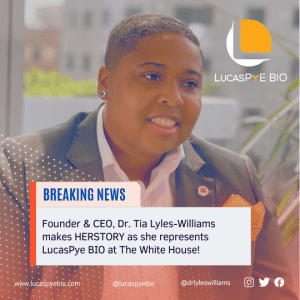
In a Recent M&A Desert, Philly Proves to Be an Oasis
More on the latest Philly M&AS: Adaptimmune and TCR2; Kite and Tmunity
By Mark Terry
March 7, 2023
With the fervor of the COVID-fueled biotech boom still going strong, many thought that 2022 was going to be a year of big M&A deals. Unfortunately, the year proved to be disappointing, like due to the biotech hype cooling down and the changing economic winds.
2023 looks to be picking back up, though, especially in the City of Brotherly Loev.
There have been two big recent mergers-and-acquisitions involving Philadelphia life science companies. Today, Philadelphia’s Adaptimmune announced a merger with TCR2 Therapeutics. And about two weeks ago, the acquisition of Philly’s Tmunity by Gilead’s Kite closed. Let’s take a closer look at these deals and what it means for the growing Philly cell and gene therapy community.
Adaptimmune and TCR2 Merge to Focus on Cell Therapies for Cancer
Philadelphia-based Adaptimmune Therapeutics and TCR2 Therapeutics, located in Cambridge, Mass., announced a deal to merge in an all-stock transaction. The combined company will focus on cell therapies to treat solid tumors.
Dana Lynch, Senior Director of Adaptimmune’s Corporate Communications, told BioBuzz, “The combination provides extensive advantages for clinical development and product delivery in cell therapy. Bringing together two clinically validated and complementary platforms in SPEAR and TRuC T-cells enabling engagement of both intracellular (MAGE-A4) and extracellular targets (mesothelin) enables access to a broader cancer target universe.”
The Adaptimmune SPEAR T-cell platform is based on affinity enhancement and T-cell receptor engineering to target HLA complexes, which are peptides specific to solid tumors. TRuC T-cell is TCR2’s proprietary platform that leverages an antibody-based binding domain fused to TCR subunits in order to reprogram an intact TCR complex to recognize antigens on the tumor surface.
Lynch added, “Additionally, with locations in key innovation hubs, the combined company will have a deep bench of cell therapy professionals, infrastructure, and end-to-end capabilities. The transaction is also anticipated to extend the runway into 2026 with operational benefits.”
The combined company will trade on the Nasdaq Stock Market under the ADAP ticker symbol. TCR2 stockholders will receive 1.5117 Adaptimmune ADS for each TCR2 share. Once completed, Adaptimmune shareholders will own about 75% of the combined company, with TCR2 stockholders owning the remaining 25%.
Lynch says, “Adrian Rawcliffe, current ADAP CEO, will be CEO of the combined company. TCR2’s CEO, Garry Menzel, will join the board of the combined company along with two other members of the TCR2 team. Other management team details for the combined company will not be available until the integration process is complete and the agreement has closed.”
For 2023, the merged company expects to complete a Biologics License Application (BLA) to the FDA for afami-cel to treat synovial sarcoma. It expects a full data readout from the monotherapy portion of the Phase I SURPASS trial of ADP-A2M4CD8 for solid tumors with initiation of the Phase II SURPASS-3 study in combination with Bristol Myers Squibb’s Opdivo (nivolumab) for platinum-resistant ovarian cancer. The merged company also expects to initiate additional cohorts in the Phase I SURPASS trial in combination with Merck’s Keytruda (pembrolizumab) for first-line treatment of head-and-neck cancer and second-line urothelial cancer.
By the end of the year, the company expects the first readout from the Phase II portion of the gavo-cel trial in platinum-resistant or refractory ovarian cancer. It also expects an interim update for gavo-cel in patients with mesothelioma in a Phase II study. A first data readout from the Phase I trial of TC-510 in ovarian cancer, malignant pleural mesothelioma, pancreatic, colorectal, or triple-negative breast cancer is also expected by the end of the year.
Kite Completes Acquisition of Tmunity
In late February, Kite, a Gilead company, completed the acquisition of Philly-based Tmunity. The deal was originally announced at the end of 2022. The deal complements Kite’s existing in-house cell therapy programs, along with its strategic research and licensing deal with the University of Pennsylvania. Penn also has an equity stake in Tmunity.
As part of the close, Kite will take over responsibility for the R&D collaboration between Tmunity and Penn, including research funding to Penn along with options and licenses to specific cell engineering and manufacturing technologies invented and developed at Penn. The Amended Research License Agreement will extend until 2026 with an option for further extension.
At the time of the original announcement, Tmunity Founder Carl June, MD, the Richard W. Vague Professor of Immunotherapy in Penn’s Perelman School of Medicine and director of Penn’s Center for Cellular Immunotherapies, stated, “Kite has demonstrated an ability to globally scale cell therapy and address the unique challenges and opportunities that cell therapy represents, which are quite different in material ways than traditional pharmaceutical or biotech approaches.”
- About the Author
- Latest Posts
Mark Terry is a freelance writer, editor, novelist and ghostwriter. He holds a degree in microbiology & public health and spent 18 years in infectious disease research and clinical and research genetics prior to his transition to a writing career. His areas of expertise include biotechnology, pharma, clinical diagnostics, and medical practice management. He has written literally thousands of articles, as well as market research reports, white papers, more than 20 books, and many other written materials. He currently lives in Michigan with his family.








